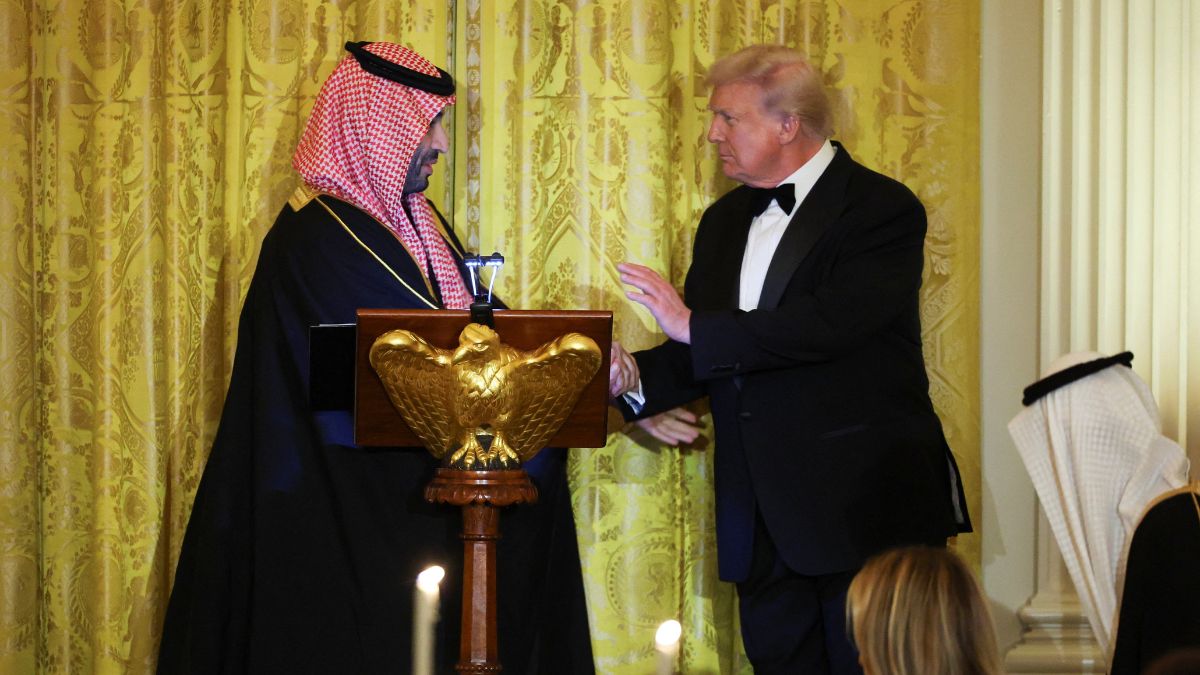)
What if you receive a message from a LinkedIn headhunter offering you a job opportunity? Chances are you’ll click on the message in hopes of getting a better opportunity. But in the United Kingdom, these innocuous messages from ‘headhunters’ are not actually job advertisements, but an attempt by China to spy.
Indeed, on Tuesday (November 18), Britain’s domestic spy service, MI5, issued an alert saying that the Chinese Ministry of State Security (MSS) was using websites such as LinkedIn to make connections with lawmakers, in an effort to “gather sensitive information on the UK to gain strategic advantage.”
However, the Chinese Embassy has rejected these allegations as “pure fabrication”. Still, it marks a new turn in increasingly strained relations between China and Britain over alleged spying.
This is what we know so far.
China’s new methodology: Fake firms seek experts
On Tuesday morning, MI5 sent a warning to UK lawmakers, highlighting China’s latest spying efforts. It said China’s goal was to “collect information and lay the groundwork for long-term relationships by using professional networking sites, recruitment agents and consultants working on its behalf”.
It said Target would initially be approached to work as a freelance consultant writing “geopolitical reports” for companies based in China. They may be legitimate companies or they may be fictitious.
“Officers use false personas on websites such as LinkedIn, which they use to locate and contact targets,” it says. “From the beginning, authorities have been particularly interested in understanding the network, along with ‘non-public’ and ‘insider’ insights to identify potential sources of information.”
Two examples of such cases were Amanda Qiu with BR-YR Executive Search and Shirley Shen with the internship union.
According to MI5, Qiu contacted former Tory special adviser James Price and was offered a part-time job as a ‘think tank expert’. Claiming to represent a Chinese battery company, he wrote: “Hi James, nice to be your friend.
“It would be a pleasure to offer an opportunity for academic/professional collaboration. We are currently looking for a Think Tank Specialist for PBG. This is a part-time job that will not take up much of your time. We would be happy to provide more details if you are interested.”
He further added a link to the website of a Chinese company that appears to specialize in lithium batteries. And when Price asked what PBG stood for, Qiu said: “Power Glory Battery Tech (Shenzhen) Co., Ltd., established in 2004, is a national high-tech specialization enterprise [sic] In the research, development, manufacturing and sales of micro lithium power supplies.
Although Price did not comment further, he was quoted as saying many times“It is deeply worrying that the Chinese Communist Party has the resources and intent to try to implicate even former special advisers, let alone lawmakers and senior civil servants. I hope the government is wise to the extreme threat the CCP represents and responds forcefully.”
In another example, he wrote about a vacancy for ‘insiders’ within politics. The advertisement reads: “You may be an expert or ‘insider’ regarding the politics or economy of your country. It would be best if you have or currently have previous experience working in government, college or a think tank, which helps you [sic] To be familiar with the policies and to provide professional and practical advice to the company.”
In Shen’s case, she wrote that she worked with an internship union based in Hangzhou, eastern China. She said it had “helped hundreds of students come to China” and described herself as “a positive Asia girl” who would “welcome friends from all over the world to join us to have a magical Chinese experience”. MI5 notes that she reached out to Labor MP Josh Simmons.
Responses from UK and China
Britain’s Security Minister Dan Jarvis responded to the MI5 alert by saying the government would not tolerate “covert and deliberate” attempts to interfere in Britain’s sovereign affairs.
He said MPs and peers as well as staff, economists, think tank staff, consultants and civil servants had all been targeted. “I urge all MPs and their staff to be mindful that the threshold for what information is considered valuable in China is low, and individual pieces of information will be aggregated to build a broader picture.
“Let me speak clearly. This activity constitutes a covert and deliberate attempt by a foreign power to interfere in our sovereign affairs in favor of its interests, and this government will not tolerate it.”
He also announced that the government would take a number of steps to counter China’s efforts to spy on government officials and private businesses across the country. He said the government would spend £170 million (Rs 1,976 crore) to upgrade computer systems in Parliament and across the government to better strengthen the security of the networks.
Meanwhile, a spokesperson for the Chinese Embassy in the UK rejected the MI5 warning, saying: “These claims on the UK side are completely fabricated and malicious slander. We strongly condemn such despicable steps on the UK side and have lodged strong representations with them.
“We urge the UK side to immediately stop this self-composed drama of false accusations and self-praise, and stop pursuing the wrong path of undermining China-UK relations.”
First allegations of espionage against China
The MI5 alert comes against the backdrop of the China spying scandal that collapsed last month. The case against Christopher Cash, a former parliamentary researcher, and Christopher Berry, an academic, who were accused of spying on Beijing lawmakers, was dropped by prosecutors who claimed a “key element” was missing in the government’s evidence.
According to prosecutors, the government’s refusal to label China an “enemy” or a “national security threat” led to the case being dropped. In fact, MI5 chief Ken McCallum had then said that Chinese spies pose a daily national security threat to Britain. “When it comes to China, the UK needs to defend strongly against the threats and seize the opportunities that serve our country.”
The case resulted in UK Prime Minister Keir Starmer being strongly criticized and accused of prioritizing Britain’s relations with China over its own national security.
Additionally, the timing of these new revelations is also important; The UK government is to announce its decision on approving a new Chinese embassy in London. The decision on the 20,000-square-metre site has already been pushed back as Beijing has refused to explain why the plan includes blacked-out areas, and critics have long said the planned complex would pose a security issue.
Shadow security minister Alicia Kearns has called on the government to refuse embassy permission and said ministers should cancel planned trips to China. “What message does this send when, despite the attack on this House and our Parliament, ministers are happily rolling out the red carpet by holding the government accountable?” Kearns said.
with inputs from agencies
end of article

)
)
)
)